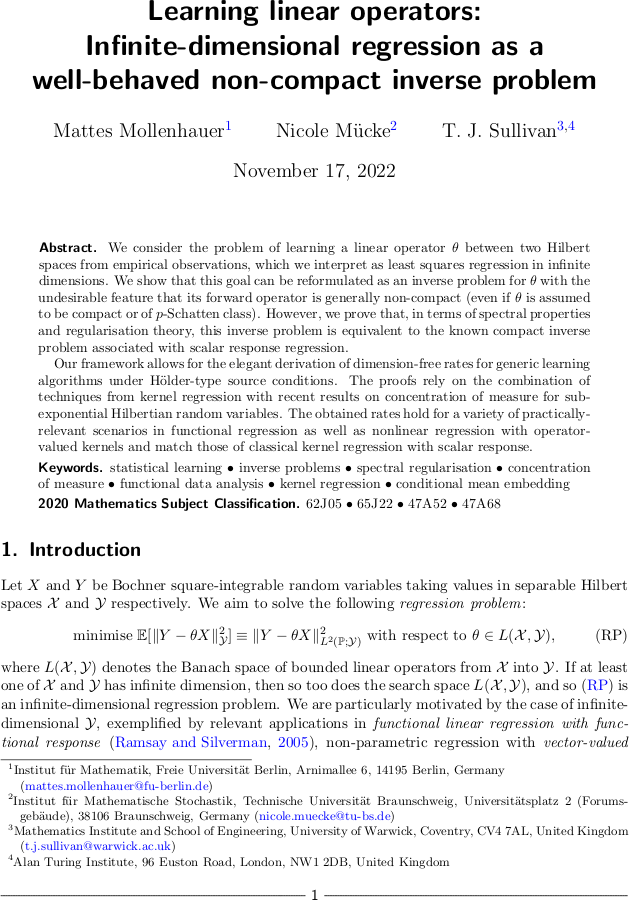#regression

Learning linear operators
Mattes Mollenhauer, Nicole Mücke, and I have just uploaded a preprint of our latest article, “Learning linear operators: Infinite-dimensional regression as a well-behaved non-compact inverse problem”, to the arXiv.
Abstract. We consider the problem of learning a linear operator \(\theta\) between two Hilbert spaces from empirical observations, which we interpret as least squares regression in infinite dimensions. We show that this goal can be reformulated as an inverse problem for \(\theta\) with the undesirable feature that its forward operator is generally non-compact (even if \(\theta\) is assumed to be compact or of \(p\)-Schatten class). However, we prove that, in terms of spectral properties and regularisation theory, this inverse problem is equivalent to the known compact inverse problem associated with scalar response regression. Our framework allows for the elegant derivation of dimension-free rates for generic learning algorithms under Hölder-type source conditions. The proofs rely on the combination of techniques from kernel regression with recent results on concentration of measure for sub-exponential Hilbertian random variables. The obtained rates hold for a variety of practically-relevant scenarios in functional regression as well as nonlinear regression with operator-valued kernels and match those of classical kernel regression with scalar response.
Published on Thursday 17 November 2022 at 10:00 UTC #preprint #learning #regression #mollenhauer #muecke